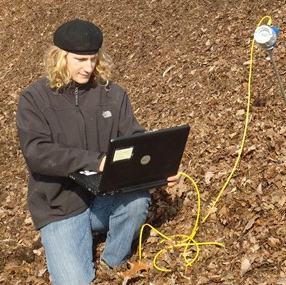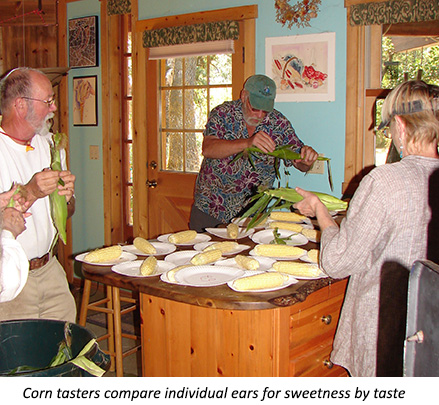Developing "Organic-Ready" Maize Populations with Gametophytic Incompatibility: Year IV
 Maize (corn) is an incredibly productive and profitable crop that works well in organic crop rotations in many parts of North America. Since the release of transgenic (GMO) varieties of maize in the mid-1990s it has become increasingly difficult to grow uncontaminated organic maize or to find maize seed that is free of transgene contamination.
Maize (corn) is an incredibly productive and profitable crop that works well in organic crop rotations in many parts of North America. Since the release of transgenic (GMO) varieties of maize in the mid-1990s it has become increasingly difficult to grow uncontaminated organic maize or to find maize seed that is free of transgene contamination. 
 Plant diseases, especially those caused by soil-borne seed infecting pathogens, pose a serious threat to the production of both greenhouse and field crops. Conventional farming operations often use fumigants and chemical seed treatments, which can be harmful to human health and the environment, for controlling seed and seedling pathogens.
Plant diseases, especially those caused by soil-borne seed infecting pathogens, pose a serious threat to the production of both greenhouse and field crops. Conventional farming operations often use fumigants and chemical seed treatments, which can be harmful to human health and the environment, for controlling seed and seedling pathogens.
 Very little sweet corn grown commercially today is open pollinated. Farmers who wish to save their own seed have few if any good choices of varieties to grow. And the hybrids of today have been developed for conditions that are different from those found on most organic farms, as they were selected to rely on fungicides and pesticides, and to effectively utilize soluble synthetic fertilizers in large quantities.
Very little sweet corn grown commercially today is open pollinated. Farmers who wish to save their own seed have few if any good choices of varieties to grow. And the hybrids of today have been developed for conditions that are different from those found on most organic farms, as they were selected to rely on fungicides and pesticides, and to effectively utilize soluble synthetic fertilizers in large quantities.